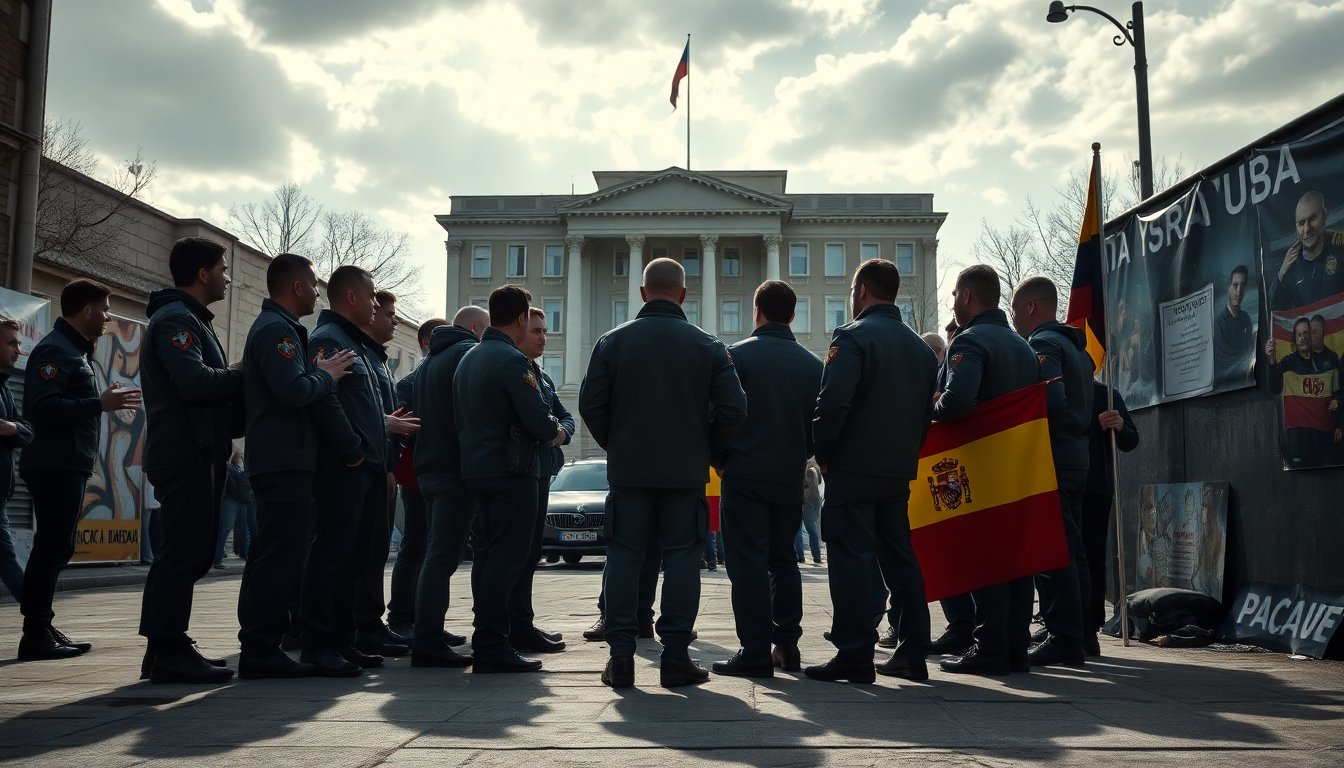Table of Contents
In a notable development, the Española battalion, a controversial paramilitary group in Russia, announced its disbandment through a message posted on its Telegram channel. This battalion, mainly comprised of far-right individuals with a strong connection to soccer, participated in various operations during the conflict in Ukraine. The announcement suggested a significant restructuring, with members likely to be integrated into different units within Russia’s military and security services.
The battalion’s statement revealed that core members, some with ties to the group since its formation in 2014, would shift their focus to roles in radio-electronic warfare and assault operations. However, certain divisions, including their naval unit and reconnaissance center, are expected to remain operational independently.
Understanding the reasons behind the disbandment
Although the group did not provide specific reasons for its dissolution, political analysts have begun to analyze the situation. Vadim Trukhachyov, a commentator for the pro-government newspaper Vzglyad, suggested that the Española battalion had become a liability for the more moderate factions within the Russian political sphere. He argued that the battalion’s actions were undermining two key narratives: the notion of Russian nationalists as a threat and the stereotype that soccer hooligans are merely violent troublemakers.
The clash of ideologies
Dmitry Steshin, a journalist linked to the neo-Nazi group BORN, supported these views in his analysis. He noted that the current Russian regime prioritizes loyalty over fostering intelligent and proactive individuals. Steshin’s comments reflect a broader critique of dynamics within Russian society, where even those who possess both intelligence and loyalty can be perceived as unnecessary.
Steshin provocatively questioned the overall benefit of the Española battalion’s disbandment, proposing that the state may prefer a more compliant and less independent-minded group of supporters. This perspective aligns with a growing sentiment that Russia’s political landscape is pivoting towards a model that values unwavering allegiance over capability.
Background of the Española battalion
The Española battalion was founded by Stanislav Orlov, known by his call sign “Spaniard,” in 2022. A devoted supporter of the CSKA Moscow soccer team, Orlov first entered combat in the Donbas region in 2014, where he confronted the harsh realities of war. His decision to form a battalion of soccer enthusiasts emerged during a time of intensified conflict in Ukraine, although reports indicate that support from other fan clubs was not as robust as he claimed.
Involvement in military operations
Members of the Española battalion participated in several significant military operations, including the siege of the Azovstal Iron and Steel Works in Mariupol in 2022. Their involvement in such events underscores the blurring lines between sports culture and military engagement in Russia, raising questions about the motivations and implications of utilizing soccer supporters in conflict.
As the battalion transitions into new roles, the future of its members remains uncertain. The restructuring may lead to the creation of new units within the Russian defense system, yet the impact of losing a group like Española could have broader implications for far-right movements within the country.
The disbandment of the Española battalion marks a potential shift in the landscape of Russian paramilitary groups. As political analysts continue to debate the ramifications of this decision, it is evident that the intersection of sports, nationalism, and military engagement will remain a critical topic of scrutiny as Russia’s defense strategies evolve.


